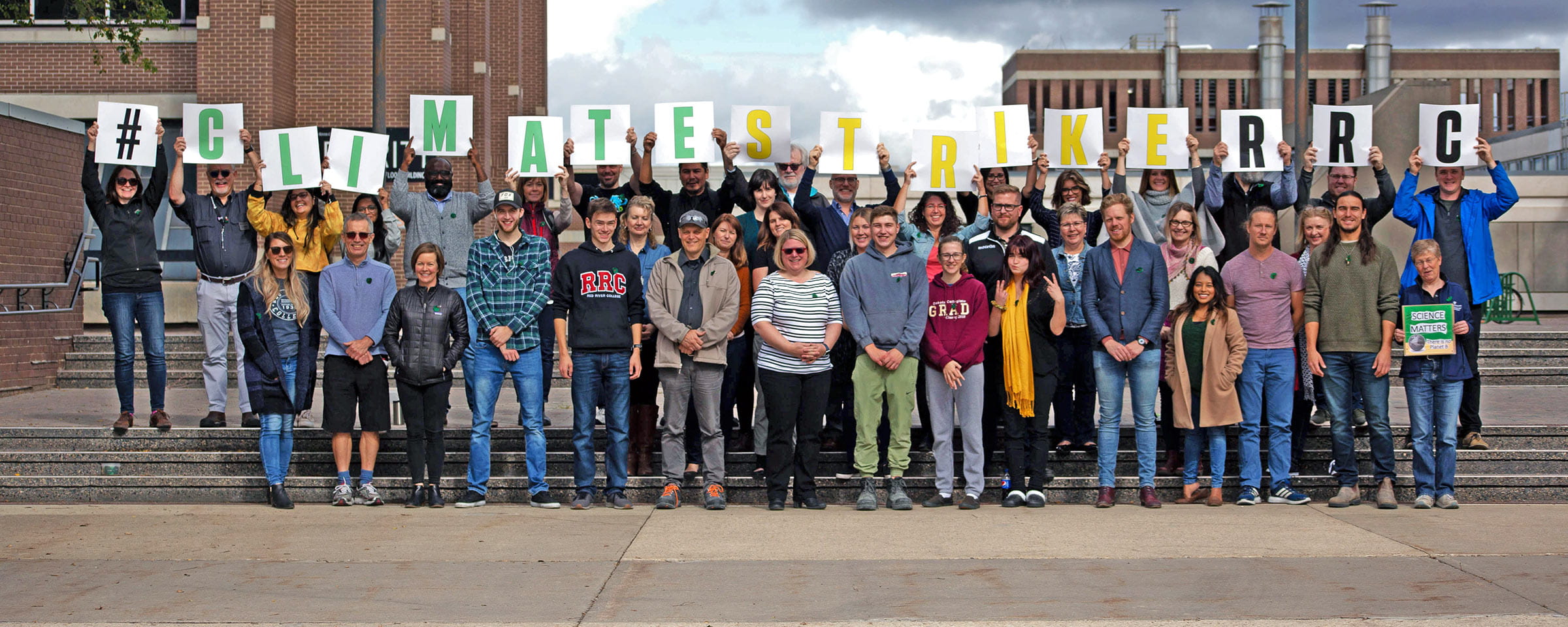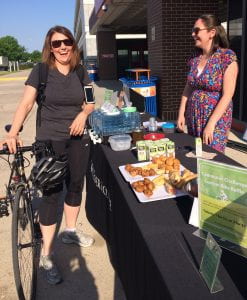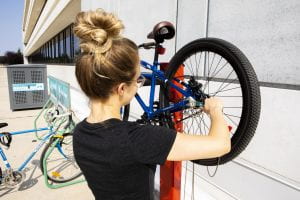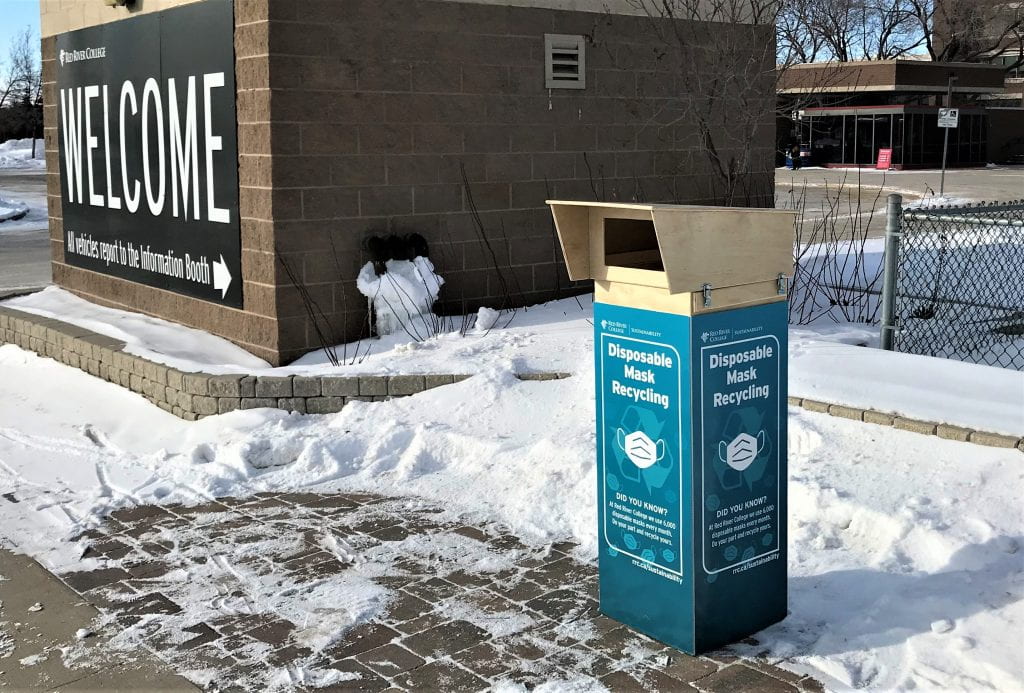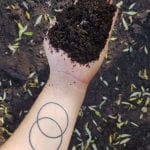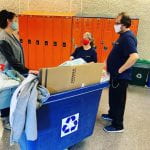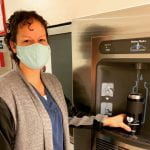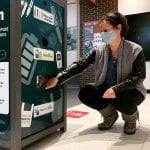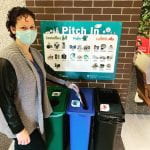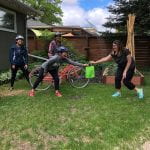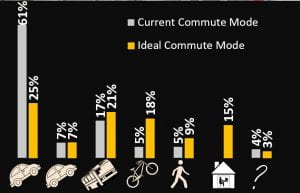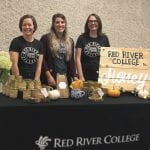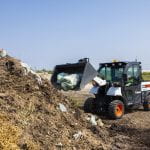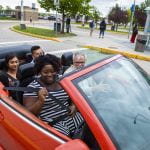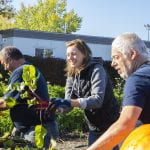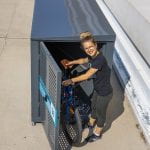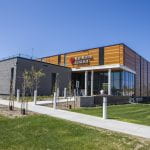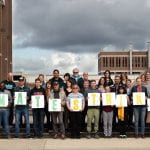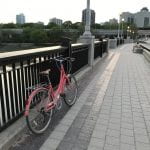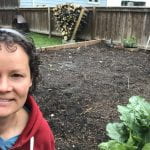Another Commuter Challenge in the Books
Posted: June 20, 2021
The Commuter Challenge is over for another year and while we didn’t get to greet you all with cinnamon buns and coffee as you arrived at campus like we’d hoped, we still enjoyed connecting with you all virtually! This year the challenge ran from May 30 to June 5 and celebrated not just sustainable work commutes, but all of the active and sustainable ways we get around.
RRC has a history of high participation in this event and we’re excited to announce that the tradition continues with us being awarded GOLD in Workplace Category this year! Thank you to everyone who participated and helped make that happen!
RRC Winners
We weren’t the only winners! Below is a list of all the RRC winners from the Challenge, including some new prizes we added since we were so blown away by everyone’s participation!
Top Traveler: The RRC participant who logged the most KMs over the week
Prize: $50 Gift Certificate to Jardins St-Léon Gardens
Winner: Cheryl J. who logged 757 KMs
NEW! Serious Cyclist: The RRC participant who logged the most cycling KMs
Prize: Winners choice! $25 Gift Certificate to Jardins St-Léon Gardens, Le Marché Saint-Norbert Farmers’ Market, or Black Market Provisions
Winner: Mike P. who logged 336 cycling KMs
NEW! Walking Warrior: The RRC participant who logged the most walking KMs
Prize: Winner’s choice! $25 Gift Certificate to Jardins St-Léon Gardens, Le Marché Saint-Norbert Farmers’ Market, or Black Market Provisions
Winner: Debbie M. who logged 164.2 walking KMs
Lucky Winner: One RRC participant selected by random draw
Prize: $50 Gift Certificate to Le Marché Saint-Norbert Farmers’ Market
Winner: Mike M.
Most Traveled Team: The RRC Team with the highest average KMs per team member
Prize: 2 x $25 Gift Certificate to Black Market Provisions, 2 x $25 Gift Certificates to Le Marché Saint-Norbert Farmers’ Market, and 1 x $25 Gift Certificates to Jardins St-Léon Gardens
Winner: C517 Group A (Laurie-Ann N., Krystal B., Karen D.) with an average of 555.6 KMs
NEW! Most Tireless Team: The RRC Team with the highest average active KMs per team member
Prize: Winner’s choice (each team member)! $25 Gift Certificate to Jardins St-Léon Gardens, Le Marché Saint-Norbert Farmers’ Market, or Black Market Provisions
Winner: The Cyclopaths (Guy D., Wayne F., Mike P., Laura P.) with an average of 201. 9 active KMs.
Finally, a very special shout-out to Del P. who won the Green Action Centre’s Grand Prize – a free bus pass for a year!
Congratulations to all the winners!
Team Results
We had 11 teams sign up for the Challenge, logging a total of 8,740 km for the week! The winning teams were selected based on the average per person total of kms logged for the whole team. The full results are below.
| AVERAGE TOTAL KMS PER TEAM MEMBER | ||
| 1 | C517 Group A | 555.6 |
| 2 | Loftus Yellow Kayakius | 255.0 |
| 3 | RRComrades | 236.1 |
| 4 | C517 Group B | 221.9 |
| 5 | Lofty Loftmore and the Sons of Oats Cousins | 211.2 |
| 6 | The Cyclopaths | 201.9 |
| 7 | Geese Mode | 156.0 |
| 8 | Active Leadership | 123.6 |
| 9 | Wildwood Park Commuters | 103.0 |
| 10 | Sustainability in Motion | 90.1 |
| 11 | Adventurous Admins | 88.7 |
| AVERAGE ACTIVE KMS PER TEAM MEMBER | ||
| 1 | The Cyclopaths | 201.9 |
| 2 | Wildwood Park Commuters | 103.0 |
| 3 | RRComrades | 88.5 |
| 4 | Active Leadership | 79.1 |
| 5 | Geese Mode | 74.7 |
| 6 | C517 Group A | 67.9 |
| 7 | Lofty Loftmore and the Sons of Oats Cousins | 66.6 |
| 8 | C517 Group B | 62.8 |
| 9 | Loftus Yellow Kayakius | 54.2 |
| 10 | Sustainability in Motion | 30.9 |
| 11 | Adventurous Admins | 17.7 |
Commuter Profiles
We asked RRC participants to share their stories about how they were taking part, how they were going to motivate themselves to keep it up, and what tips they have to inspire others to go that extra mile or try something new. Their stories are below. The Commuter Challenge is just one week, but let’s try to keep up with our active and sustainable trips all year round!
 Lynn after one of her Commuter Challenge runs. I usually carpool to work but outside of work I love walking. I live in a fairly walkable community and am able to easily run most errands without the use of a vehicle. For the 2021 Commuter Challenge, I will be logging many different sustainable trips including carpooling to work and walking, running and riding my bike for pleasure and to fulfil household requirements. With the Challenge being in the summer, it motivates me even more to get outside and enjoy the short season. Given what we’ve all been dealing with, it’s a wonderful opportunity to connect and challenge ourselves and others – even though we have to do it in a socially distanced way. My tip for others to help them get started or to try something new is: Just do it! I find activity helps my mental health and also helps me to stay in shape. My mantra is – A body in motion stays in motion!! – Lynn Zapshala-Kelln, Vice President, Finance and Administration |
|
I currently drive from my home in Tuxedo, to the Notre Dame Campus, 3 to 5 days a week. I am also very active in walking our two dogs twice a day to and from Assiniboine Park (30 mins total). My commitment to the 2021 Commuter Challenge will be to ditch the 15 minute drive for a 30 minute bike ride to and from work (60 mins total) and to increase the daily dog walks to a full 60 minutes. As a bonus, I’ll be engaging my wife and sons to go on bike rides with me for fun! I am not sure who will be more tired, me or the dogs! Good luck to everyone in this amazing opportunity. – Dr. Christine Watson, Vice-President, Academic and Research Check out this episode of Where’s Watson? where Christine speaks with our Director, Sara MacArthur, about the Commuter Challenge. |
 Linda’s bike at her favourite spot on Lyndale Drive. The commuter challenge is a great reminder to get out, get moving and be active. As a fitness professional and yoga teacher, I add cycling to my workout and this is my chance to connect with nature. I find that it really helps improve my mental health and the sunshine always makes me feel better. I can usually be found cycling down Lyndale drive and even though I don’t live in the neighborhood, everyone waves and says hi to me when I am in the area. Enjoy your day everyone and take care. – Linda Caldwell |
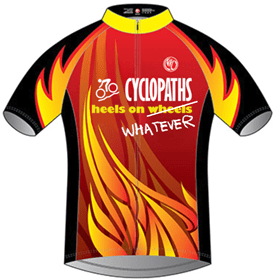 The Cyclopaths team jersey The Cyclopaths are a four-member team of current (Laura P. & Mike P.) and retired (Guy D. & Wayne F.) RRC staff: Originally formed for a 2019 seven-day, 540 km cycling adventure through the Rockies, the reconstituted Cyclopaths (with the addition of Laura) are now going flat out, so to speak, as a RRC team in the Commuter Challenge. We are particularly invigorated since Laura brought our average age down from 70 to just over 60. Go team go! – The Cyclopaths (Team Profile) |
